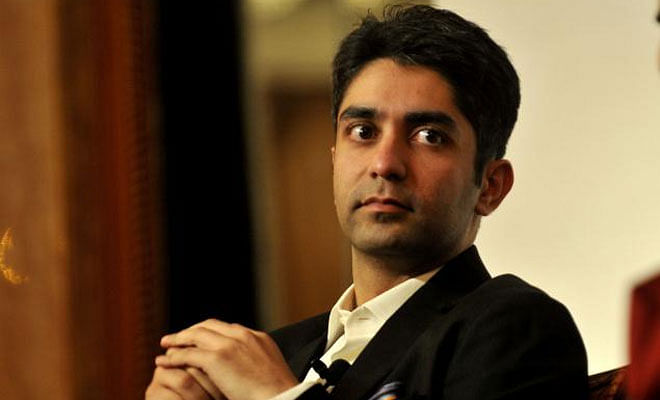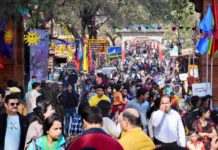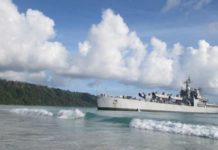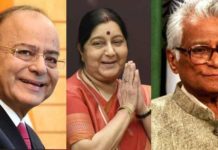The Daily Briefs are a comprehensive update of current affairs for the day. To know more about them, read this. If you’d like to receive updates for current affairs every day, you’ll need to subscribe by entering your email address at the right side of this page. The previous Briefs can be accessed at the archives here. Also, check out our mock tests!
- Over 50 non-governmental organisations, environmental groups and civil society members staged a procession on Republic Day to endorse a People’s Manifesto and people’s pledge to support, promote and vote for implementation of the Goenchi Mati Manifesto. The Goenchi Mati Movement (GMM) is a single issue movement in Goa which is not aligned with any specific political party. The GMM has asked all parties to endorse and incorporate their Goenchi Mati Manifesto into their manifestos for the Assembly elections. Among other issues, the group endorses mining with environmental safeguards and the concept of inter-generational equity.
- After declaring the naval version of the indigenous Light Combat Aircraft Tejas unfit for operating from aircraft carriers in its “present form,” the Indian Navy has launched a global hunt for a carrier-based multi-role fighter aircraft. The Navy currently operates Russian Mig-29K twin engine fighters from the aircraft carrier INS Vikramaditya. These will also fly from the first Indigenous Aircraft Carrier Vikrant once it enters service.

- Dr. Vijay Bhatkar, the man behind India’s first supercomputer, the Param series, is to be the new Chancellor of Nalanda University. He will replace George Yeo, former Foreign Minister of Singapore, who quit after the Board of the University was reconstituted, saying he had not been consulted before it took place.
- The Supreme Court will hear all applications filed to challenge Tamil Nadu’s amendment of the Prevention of Cruelty to Animals Act of 1960, allowing jallikattu to be held in the State, on January 31, 2017. The applications will be heard by a bench of Justices Dipak Mishra and Rohinton Nariman.
- The Indian Space Research Organisation (ISRO) successfully tested indigenously developed cryogenic engine for the upper stage GSLV Mk III rocket. The cryogenic upper stage, designated as C25, was tested for 50 seconds at the ISRO Propulsion Complex at Mahendragiri in Tamil Nadu, demonstrating all the stage operations. It was the first test in a series of two tests. The second test is planned for a flight duration of 640 seconds.
- President Pranab Mukherjee has given the Governor of Assam Banwarilal Purohit additional charge of Meghalaya. Besides, the President also gave the Governor of Nagaland PB Acharya, additional charge of Arunachal Pradesh. These appointments come after the President accepted the resignation of V. Shanmuganathan as Governor of Meghalaya and Arunachal Pradesh.

- The Union Ministry of Youth Affairs and Sports has reconstituted the Target Olympic Podium (TOP) committee with the objective of identifying and supporting potential medal prospects for 2020 and 2024 Olympic Games under the TOP scheme. The committee will be headed by Abhinav Bindra, Olympic Gold Medalist.
- Sania Mirza put herself in contention for a seventh Grand Slam title as she breezed into the Australian Open mixed doubles final with Ivan Dodig, beating local favourites Samantha Stosur and Sam Groth.
- Researchers from The Scripps Research Institute, US have created the world’s first stable semi-synthetic organism, a single-celled bacterium with an expanded genetic code The semi-synthetic organism is the modified E.coli bacteria created by introducing DNA molecules that are not found in nature in a common bacterium.
- The group of scientists who orchestrate the Doomsday Clock, a symbolic instrument informing the public when the Earth is facing imminent disaster, moved its minute hand 30 seconds forward. The clock, which earlier showed three minutes to the final hour, now stands at two minutes and a half before midnight. It is the closest the clock has been to midnight since 1953, the year after the United States and the Soviet Union conducted competing tests of the hydrogen bomb. Though scientists decide on the clock’s position, it is not a scientific instrument, or even a physical one. The movement of its symbolic hands is decided upon by the Science and Security Board of the Bulletin of the Atomic Scientists.
- For the first time, biologists have succeeded in growing human stem cells in pig embryos, shifting from science fiction to the realm of the possible the idea of developing human organs in animals for later transplant.
Today’s Quiz
















really helpful… thankyou 🙂
Thanks!
Mahendragiri hills are in orissa
thanks